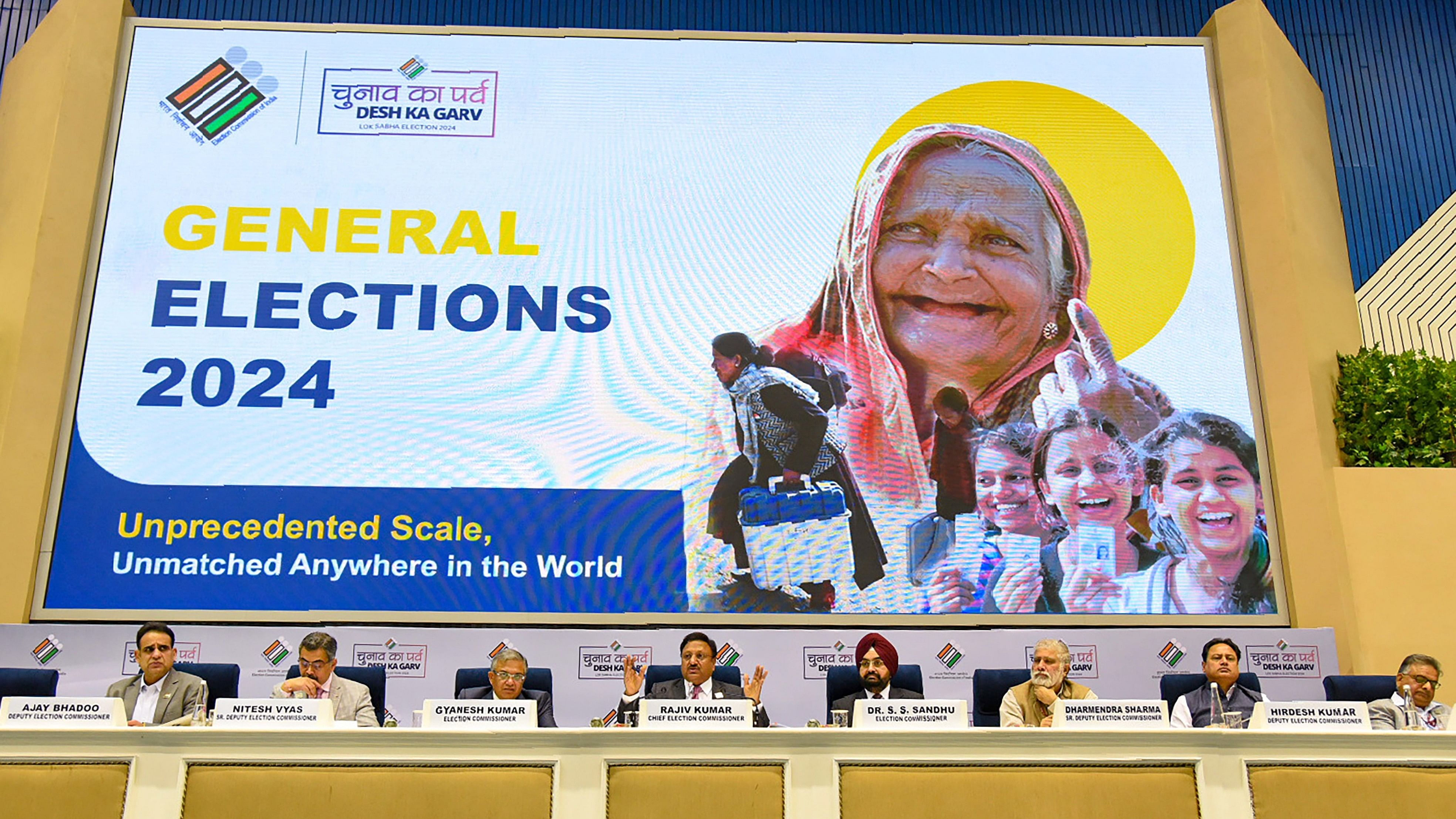
Chief Election Commissioner Rajiv Kumar with Election Commissioners Gyanesh Kumar and S.S. Sandhu during the announcement of the schedule for General Elections 2024, and elections to the Legislative Assemblies of Andhra Pradesh, Sikkim, Arunachal Pradesh and Odisha, in New Delhi, Saturday, March 16, 2024. Lok Sabha elections will be held in seven phases beginning from April 19 and results will be announced on June 4.
PTI Photo
The country has moved into election gear with the announcement of the poll schedule by the Election Commission of India. The commission has announced a seven-phase schedule for the Lok Sabha elections from April 19 to June 1, with counting of votes slated for June 4. lections are going to dominate life in the country for the next two months and a half. They are not just about politics and governance, but also about a host of other concerns. The campaigns have even become cultural expressions, done in unique and diverse ways, with the sights, sounds and emotions creating a grand orchestra and a splendid show. The players, the scripts and the themes are mostly known, but there will be greater clarity about them in the days to come.
Some concerns are being expressed about the design of the elections as it will have an impact on the campaigns and even the outcomes. While the poll process had spread over 36 days in the last elections, it will take 46 days this time. Even though the process is for 46 days, the campaign actually starts now. Long campaign periods benefit parties with more resources and work to the disadvantage of smaller parties with meagre resources. This amounts to denying a level playing field for all. The summer has just started and the campaign will take up the entire hot season. Candidates, party workers and others will find it difficult to undertake a long campaign in the scorching heat. The main reason for holding elections over a long period, it is said, is that it requires movement and deployment of security forces to ensure safe polling. But this argument is not as valid now as it was in the past. A longer campaign also increases the cost of elections. The model code of conduct has come into operation and the commission has to ensure that it is not violated anywhere in the country for a long period. The normal functioning of governments stops for that period. It is wrong to paralyse the functioning of the government in a state just because elections are taking place in another. The voters and the candidates also have to wait for the results of the elections for a long period. The waiting period is for many weeks for those in some states.
The duration of the poll process has increased in India over the years. The Lok Sabha election was held over 21 days in 2004, 28 days in 2009, 37 days in 2014 and 36 days in 2019. They will now be held over 46 days. Such long polling periods are not in the interest of free and fair elections. Elections are a very human endeavour. Physical, mental, emotional and financial factors that influence human behaviour impact them. The weather is also an important factor. It is for the Election Commission to take all these into consideration and frame a schedule which ensures holding of elections in the most fair and efficient manner. The 2024 schedule could have been framed better.